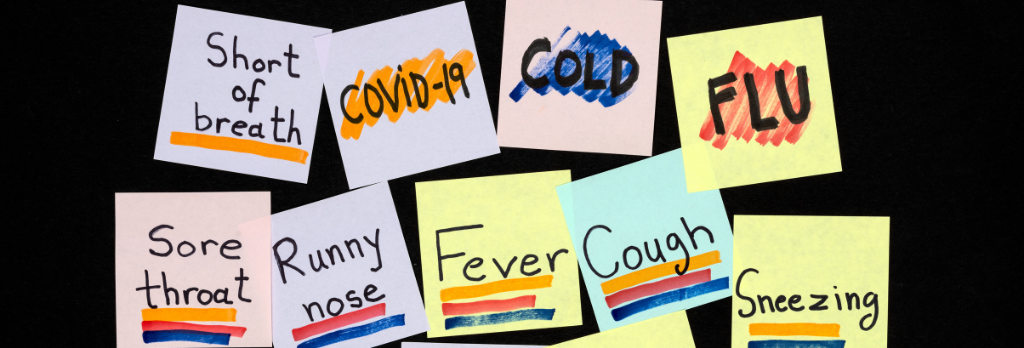What You Should Know About Flu Antiviral Drugs
January 30, 2023Can flu be treated?
Yes. There are prescription medications called “antiviral drugs” that can be used to treat flu illness. CDC recommends prompt treatment for people who have flu or suspected flu and who are at higher risk of serious flu complications, such as people with asthma, diabetes (including gestational diabetes), or heart disease.
Flu antiviral drugs are prescription medicines (pills, liquid, an inhaled powder, or an intravenous solution) that fight against flu viruses in your body. Antiviral drugs are not sold over the counter. You can only get them if you have a prescription from a health care provider. Antiviral drugs are different from antibiotics, which fight against bacterial infections. Antiviral drugs for flu only work to treat flu. Flu antiviral drugs are different than antiviral drugs used to treat other infectious diseases such as COVID-19. Antiviral drugs prescribed to treat COVID-19 are not approved or authorized to treat flu.
What should I do if I think I am sick with flu?
If you get sick with flu, antiviral drugs are a treatment option. Check with your doctor promptly if you are at higher risk of serious flu complications (full list of higher risk factors) and you develop flu symptoms. Flu signs and symptoms can include feeling feverish or having a fever, cough, sore throat, runny or stuffy nose, body aches, headache, chills, and fatigue. However, not everyone with the flu has a fever. Your doctor may prescribe antiviral drugs to treat your flu illness.
Should I still get a flu vaccine?
Yes. Antiviral drugs are not a substitute for getting a flu vaccine. While flu vaccine can vary in how well it works, a flu vaccine is best way to help prevent seasonal flu and its potentially serious complications. Everyone 6 months and older should receive a flu vaccine every year. Antiviral drugs are a second line of defense that can be used to treat flu (including seasonal flu and variant flu viruses) if you get sick.
What are the benefits of antiviral drugs?
When treatment is started within two days of becoming sick with flu symptoms, antiviral drugs can lessen fever and flu symptoms and shorten the time you are sick by about one day. They also may reduce the risk of complications such as ear infections in children, respiratory complications requiring antibiotics, and hospitalization in adults. For people at higher risk of serious flu complications, early treatment with an antiviral drug can mean having milder illness instead of more severe illness that might require a hospital stay. For adults hospitalized with flu illness, some studies have reported that early antiviral treatment can reduce their risk of death.
When should antiviral drugs be taken for treatment?
Antiviral treatment provides the greatest benefit when started soon after flu illness begins. Studies show that flu antiviral drugs work best for treatment when they are started within two days of getting sick. However, starting them later can still be beneficial, especially if the sick person is at higher risk of serious flu complications or is in the hospital with more severe illness. Follow instructions for taking these drugs. Follow your doctor’s instructions and the dose, frequency, and duration listed on the label instructions for taking these drugs.
What antiviral drugs are recommended this flu season?
There are four FDA-approved antiviral drugs recommended by CDC to treat flu this season.
- oseltamivir phosphate (available as a generic version or under the trade name Tamiflu®),
- zanamivir (trade name Relenza®)
- peramivir (trade name Rapivab®), and
- baloxavir marboxil (trade name Xofluza®).
Generic oseltamivir and Tamiflu® are available as a pill or liquid suspension and are FDA approved for early treatment of flu in people 14 days and older.
Zanamivir is a powdered medication that is inhaled and approved for early treatment of flu in people 7 years and older. (Note: Zanamivir (trade name Relenza®) is administered using an inhaler device and is not recommended for people with breathing problems like asthma or COPD.) Oseltamivir and zanamivir are given twice a day for five days.
Peramivir is given once intravenously by a health care provider and is approved for early treatment of flu in people 6 months and older.
Baloxavir is a pill given as a single dose by mouth and is approved for early treatment of flu in children aged 5 years to less than 12 years who do not have any chronic medical conditions, and for all people aged 12 years and older. (Note: Baloxavir (trade name Xofluza®) is not recommended for treatment of flu in pregnant people, lactating people, or in outpatients with complicated or progressive illness because there is no information about use of baloxavir in these patients. Baloxavir is also not recommended for treatment of flu in hospitalized patients due to limited data.)
How long should antiviral drugs be taken?
To treat flu, oseltamivir or inhaled zanamivir are usually prescribed for five days, while one dose of intravenous peramivir or one dose of oral Baloxavir are usually prescribed. Oseltamivir treatment is given to hospitalized patients, and some patients might be treated for more than five days.
What are the possible side effects of antiviral drugs?
Side effects vary for each medication. The most common side effects for oseltamivir are nausea and vomiting. Zanamivir can cause bronchospasm, and peramivir can cause diarrhea. Other less common side effects also have been reported. Your health care provider can give you more information about these drugs or you can check the Food and Drug Administration (FDA) website for specific information about antiviral drugs, including the manufacturer’s package insert.
Can pregnant people take antiviral drugs?
Yes. Oral oseltamivir is recommended for treatment of pregnant people with flu because compared to other recommended antiviral medications, it has the most studies available to suggest that it is safe and beneficial during pregnancy. Baloxavir is not recommended for pregnant people or while breastfeeding, as there are no available efficacy or safety data.
Who should take antiviral drugs?
It’s very important that flu antiviral drugs are started as soon as possible to treat patients who are hospitalized with flu, people who are very sick with flu but who do not need to be hospitalized, and people who are at higher risk of serious flu complications based on their age or health, if they develop flu symptoms. Although other people with mild illness who are not at higher risk of flu complications may also be treated early with antiviral drugs by their doctor, most people who are otherwise healthy and not at higher risk for flu complications do not need to be treated with antiviral drugs.
Following is a list of all the health and age factors that are known to increase a person’s risk of getting serious complications from the flu:
- Asthma
- Neurologic and neurodevelopment conditions
- Blood disorders (such as sickle cell disease)
- Chronic lung disease (such a chronic obstructive pulmonary disease [COPD] and cystic fibrosis)
- Endocrine disorders (such as diabetes mellitus)
- Heart disease (such a congenital heart disease, congestive heart failure and coronary artery disease)
- Kidney disorders
- Liver disorders
- Metabolic disorders (such as inherited metabolic disorders and mitochondrial disorders)
- People who are obese with a body mass index [BMI] of 40 or higher
- People younger than 19 years of age on long-term aspirin- or salicylate-containing medications.
- People with a weakened immune system due to disease (such as people with HIV or AIDS, or some cancers such as leukemia) or medications (such as those receiving chemotherapy or radiation treatment for cancer, or persons with chronic conditions requiring chronic corticosteroids or other drugs that suppress the immune system)
Other people at higher risk from flu:
- Adults 65 years and older
- Children younger than 2 years old
- Pregnant women and women up to 2 weeks after the end of pregnancy
- People from certain racial and ethnic minority groups, including non-Hispanic Black, Hispanic or Latino, and American Indiana or Alaska Native persons
- People who live in nursing homes and other long-term care facilities.
- Although all children younger than 5 years old are considered at higher risk for serious flu complications, the highest risk is for those younger than 2 years old, with the highest hospitalization and death rates among infants younger than 6 months old.
To learn more, please visit https://www.cdc.gov/flu/treatment/whatyoushould.htm.











